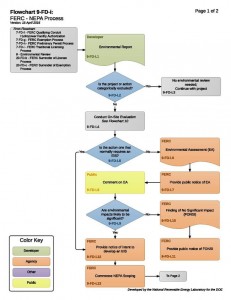From the Allegheny Blue Ridge Alliance, ABRA Update #225 — April 11, 2019
The opening brief in a lawsuit challenging the Federal Energy Regulatory Commission’s (FERC) certificate that allows construction of the Atlantic Coast Pipeline (ACP) was filed on April 5 with the U.S. Court of Appeals for the District of Columbia. Appalachian Voices, et. al. vs. FERC, which includes several ABRA members as plaintiffs, had originally been filed with the Fourth Circuit Court of Appeals. It was subsequently transferred to the DC Circuit Court where it was consolidated with several other pending cases that challenged the FERC certificate for the ACP.
The principal arguments made in the April 5 brief are:
1. FERC’s exclusive reliance on precedent agreements with affiliated monopoly utilities to establish market need for the project was arbitrary and capricious. Such precedent agreements are unreliable evidence for market need.
2. FERC’s Environmental Impact Statement on the ACP was seriously deficient and thus violated requirements of the National Environmental Protection Act (NEPA). Specifically:
• FERC failed to adequately consider the adequacy of existing transmission systems and off-forest alternative routes;
• The impacts to aquatic resources, including sedimentation impacts and impacts in karst terrain, were inadequately analyzed by FERC;
• Analysis of environmental justice impacts by FERC was flawed;
• Impacts of downstream greenhouse gas emissions were insufficiently considered;
and
• FERC’s refusal to use the Social Cost of Carbon without an adequate explanation was arbitrary and capricious.
3. Allowing the ACP, LLC to exercise eminent domain violates the Natural Gas Act and the Constitution because 1) several required permits and related conditions for the project have been vacated, thus removing the basis on which eminent domain authority should be exercised, 2) the use of eminent domain for the ACP thus violates the takings clause of the Constitution and also violates due process.
A copy of the complete brief is available here.

